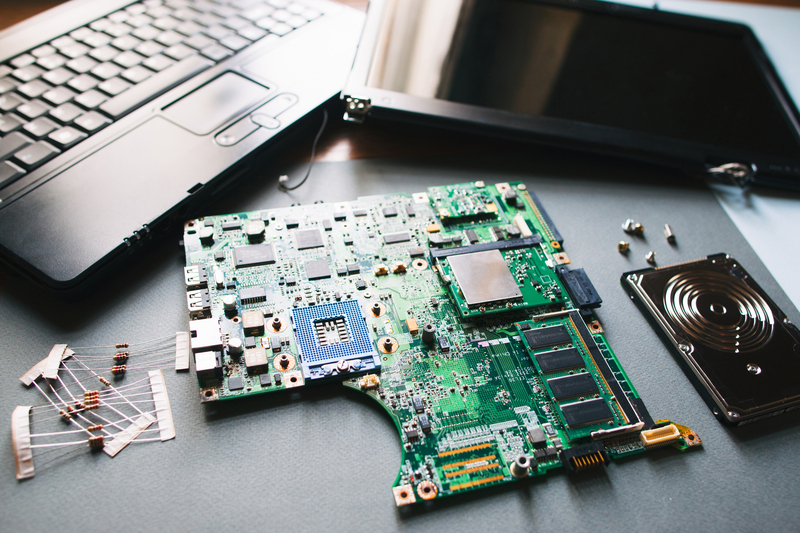Keep Your Community Clean by Disposing of PPE Waste the Right Way
The ongoing necessity for personal protective equipment (PPE) remains evident as the world continues tackling health and safety concerns. From face masks and gloves to face shields and hand sanitizers, PPE has become a crucial part of our daily lives. However, the growing demand and usage have inadvertently given rise to another issue - improper PPE waste disposal.
Maintaining a clean community by disposing of PPE waste the right way is not just about keeping streets clutter-free; it's about safeguarding both public health and the environment. This comprehensive guide aims to teach communities and individuals why proper PPE disposal is important, how to do it correctly, and steps everyone can take to promote a cleaner, healthier environment.
Why Is Proper PPE Waste Disposal Important?
PPE, including masks, gloves, protective gowns, and sanitizing wipes, is primarily made from single-use materials such as plastics and synthetic fibers. These materials can persist in the environment for years, causing harm to wildlife, polluting water sources, and ultimately entering the human food chain.
In addition to environmental concerns, improperly discarded PPE poses significant health risks. PPE items are designed to trap germs, bacteria, and viruses, potentially spreading diseases when disposed of incorrectly.
Key Reasons to Dispose of PPE Properly:
- Prevent Litter and Pollution: Careless disposal of PPE contributes to unsightly litter that can clog drains, pollute waterways, and harm the ecosystem.
- Protect Public Health: Used PPE may be contaminated and can become a source of infection in public areas.
- Wildlife Safety: Animals often mistake PPE for food or become entangled, leading to injuries or fatalities.
- Community Responsibility: Setting a good example encourages others to follow suit, promoting sustainable community habits.
PPE Waste and Environmental Impact
Single-use PPE is typically made from non-biodegradable materials such as polypropylene, latex, and vinyl. When thrown away carelessly, these products not only persist for hundreds of years but also break down into microplastics that contaminate soil and water.
- Face Masks: Often contain layers of polypropylene plastic.
- Gloves: Made from latex, nitrile, or vinyl, none of which are readily biodegradable.
- Protective Suits & Aprons: Generally constructed from synthetic, long-lasting polymers.
- Sanitizing Wipes: Many wipes contain plastic fibers and chemical agents.
Improper disposal exacerbates plastic pollution, impacts marine and land animals, and can introduce toxins into the ecosystem. Therefore, community cleanliness starts by managing PPE waste effectively.

Steps to Dispose of PPE Waste Properly
Proper PPE waste management requires following specific steps to ensure safety and minimize environmental damage. By adopting correct disposal methods, we can keep our communities clean and safe.
Step 1: Remove PPE Safely
- Before disposal, safely remove your PPE without touching your face or contaminated surfaces.
- Turn gloves inside out as you remove them, and handle masks only by the ear loops or ties.
- After removing PPE, thoroughly wash your hands with soap and water or use hand sanitizer.
Step 2: Segregate PPE Waste
PPE waste is considered contaminated and should be separated from regular household or office trash. Use designated containers or bags, preferably ones that are labeled or colored specifically for PPE waste.
- Use sturdy, leak-proof bags for discarded masks, gloves, and wipes.
- Seal bags tightly before disposing them into the appropriate bin to prevent exposure and spillage.
Step 3: Utilize Community Disposal Facilities
Many cities and towns have set up special waste bins or collection points for PPE waste. If these are available in your area, always use them instead of public bins or street trashcans.
- Look for bins labeled "PPE Waste Only" or "Hazardous Waste".
- Contact your local waste authority for information on scheduled PPE waste pickups.
Step 4: Never Recycle Used PPE
Discarded PPE is not suitable for recycling through regular curbside programs. Placing contaminated PPE in recycling bins can put sanitation workers at risk and contaminate other recyclables.
Step 5: Dispose of PPE Responsibly When Outdoors
- If you must discard PPE items outside the home, always carry a small refuse bag with you.
- Place used PPE in your bag, seal it, then dispose of it in a designated waste bin when you find one.
- Never, under any circumstances, drop PPE on the street, in parks, or natural areas.
Step 6: Encourage Others and Lead by Example
Your actions influence your friends, family, and neighbors. When you dispose of PPE waste correctly, you set a standard for others to follow.
- Share information about proper PPE disposal in person and online.
- Report overflowing or misused PPE bins to local authorities.
- Participate in or organize community clean-up events focused on PPE waste.
Community Initiatives for Proper PPE Waste Management
Communities play a pivotal role in maintaining a safe, healthy, and clean environment. Local governments, organizations, and citizens alike can develop systems and projects to bolster the correct disposal of PPE waste.
Implement Designated PPE Waste Bins
- Install labeled PPE waste bins in high-traffic areas, such as supermarkets, public transport stations, offices, schools, and parks.
- Use colors and signs to differentiate PPE bins from regular waste and recycling containers.
Run Public Education Campaigns
- Launch social media campaigns, posters, and community workshops on the importance of safe PPE disposal.
- Share guidelines on official websites and local community boards.
Organize PPE Waste Collection Days
- Coordinate with waste management services to set specific collection days for PPE waste.
- Provide free or discounted PPE kits that include information leaflets on proper disposal.
Support Local Clean-up Drives
- Volunteer for or help organize regular clean-up days targeting PPE litter in public spaces.
- Encourage schools, offices, and religious places to participate in PPE collection initiatives.
Foster Business Responsibility
- Encourage businesses to provide PPE waste disposal bins at entrances and exits.
- Promote company policies for safe handling and disposal of PPE among employees.
What Can Individuals Do to Promote a Clean Community?
Everyone has a stake in community cleanliness. While local authorities can set up infrastructure, individual actions matter just as much. Here's how you can do your part:
- Carry a personal waste bag: Always have a small bag for storing used masks and gloves until you find a PPE bin.
- Don't flush PPE items: Never flush masks, gloves, or wipes down toilets--they can block sewage systems and contribute to water pollution.
- Spread awareness: Educate friends and family about the risks of improper PPE waste disposal and encourage responsible behavior.
- Reduce usage where possible: Consider reusable masks and gloves when appropriate, but wash them regularly according to safety guidelines.
PPE Waste Disposal: Myths and Facts
There are several misconceptions surrounding PPE waste management. Let's debunk a few, so your community can stay informed and clean:
- Myth: It's safe to recycle used masks and gloves.
Fact: Used PPE is considered contaminated and should never be placed in standard recycling bins. - Myth: Throwing PPE in any trash bin is okay as long as it's out of sight.
Fact: PPE needs secure, sealed disposable bags to limit exposure and contamination risk. - Myth: Flushing wipes or gloves is an easy disposal solution.
Fact: Such items clog sewage systems and pollute water, leading to environmental disasters. - Myth: The impact of a single mask is insignificant.
Fact: Accumulated PPE waste from millions of people can create major environmental and health hazards.
Government and Corporate Roles in PPE Waste Management
While individuals and communities are foundational, sustainable PPE waste management often requires concerted effort at higher levels.
Government Action
- Regulate PPE disposal practices by mandating designated bins and safe collection processes.
- Support public awareness campaigns for education and engagement.
- Fund research into biodegradable and recyclable PPE technologies.
Corporate Responsibility
- Adopt green practices, such as providing reusable PPE where feasible.
- Enforce proper disposal protocols in workplaces and supply chains.
- Invest in recycling initiatives for uncontaminated PPE manufacturing waste.

Innovations in PPE Waste Management
New solutions are emerging to combat the rise in PPE litter. Some organizations and research institutions are developing biodegradable PPE, and pilot programs are recycling uncontaminated PPE materials for industrial use.
- Biodegradable PPE: Made from plant-based polymers, these alternatives break down faster and are less harmful to the environment.
- PPE Recycling Programs: Specialized programs are collecting and processing certain types of PPE for reuse in new products.
- Awareness Technologies: Mobile apps and QR-coded bins are being used to educate and encourage proper disposal.
Conclusion: Keep Your Community Clean--Dispose PPE Waste Responsibly
Community cleanliness and public health depend on how we manage new waste streams like PPE. By following the right steps for disposal, engaging in educational outreach, and advocating for systemic solutions, every individual has the power to protect their surroundings and contribute to a safer environment.
The next time you reach for your mask or gloves, remember: every piece of PPE you dispose of the right way helps keep your community beautiful, safe, and healthy. Let's work together to make responsible PPE waste management a standard of care in our neighborhoods and beyond.
Take Action Now:
- Always dispose of PPE in the correct bin or sealed bag.
- Educate those around you about the importance of proper PPE waste disposal.
- Support or initiate community projects that advocate for clean and safe neighborhoods.
Protect your health. Protect your environment. Keep your community clean by disposing of PPE waste the right way!
```